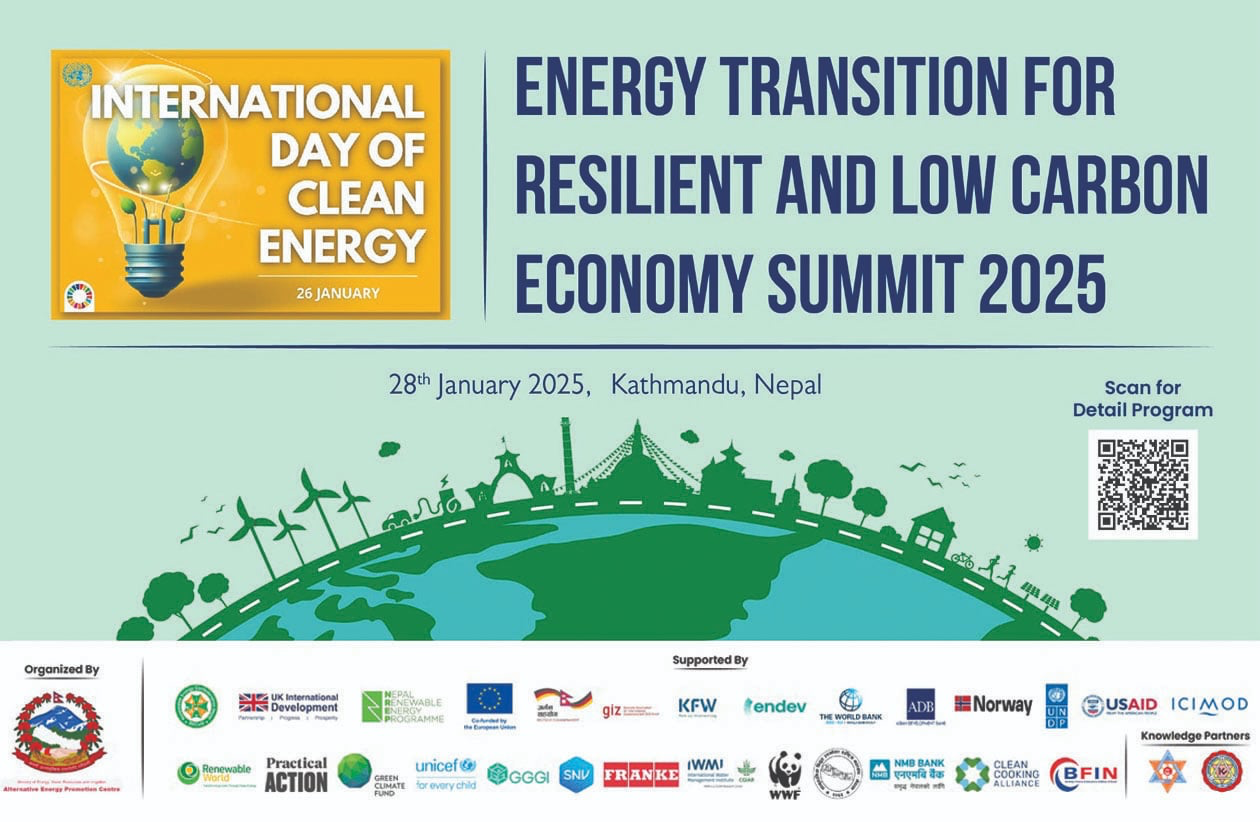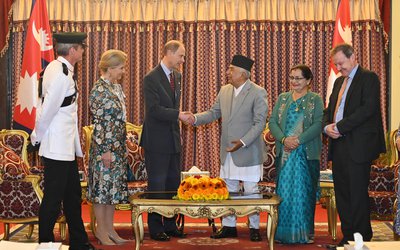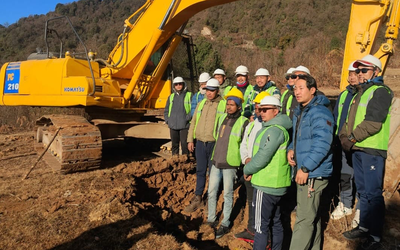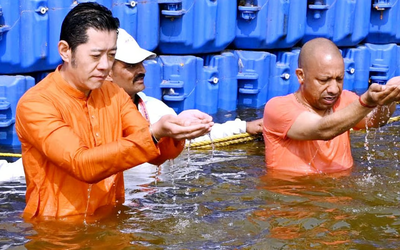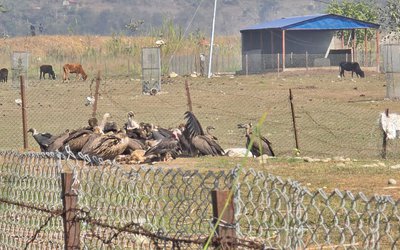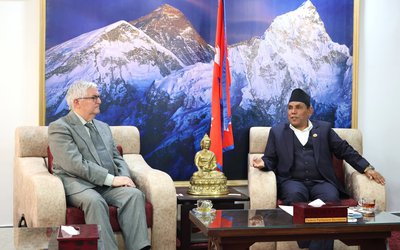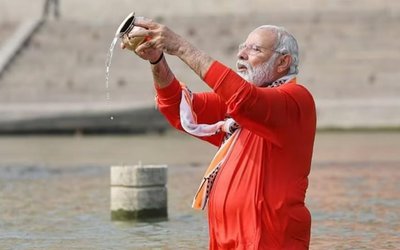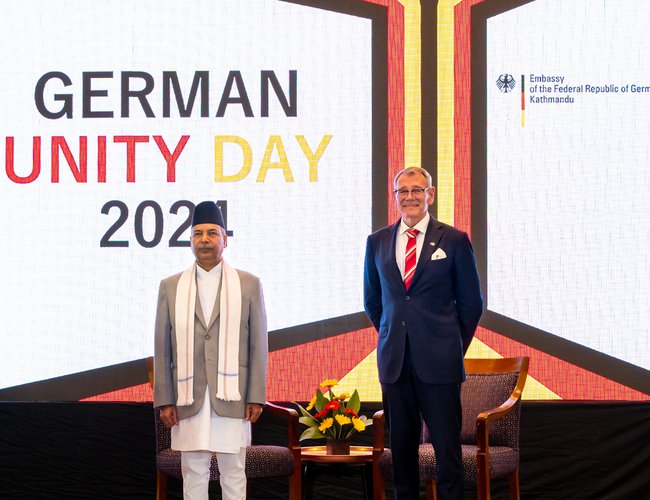
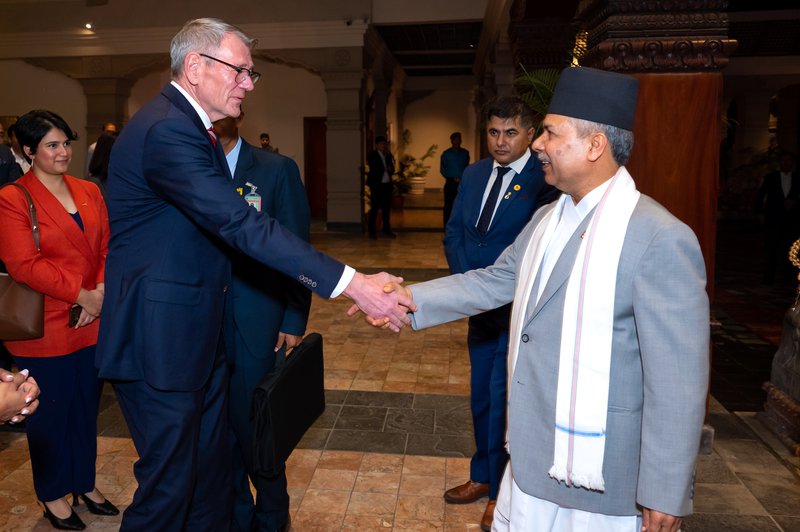
Dr. Thomas Prinz, the Ambassador of the Federal Republic of Germany to Nepal, and Mrs. Anuza Prinz hosted a celebration for the Day of German Unity and the 66th anniversary of diplomatic relations between Nepal and Germany. The event took place at the Hyatt Regency in Boudha, Kathmandu, and welcomed over 400 guests.
This year marks 50 years of GIZ’s presence in Nepal as well as 61 years since KfW’s establishment. GIZ, as part of German Development Cooperation, has been providing impactful technical cooperation in the country. Simultaneously, KfW provides financial cooperation in various sectors in Nepal.
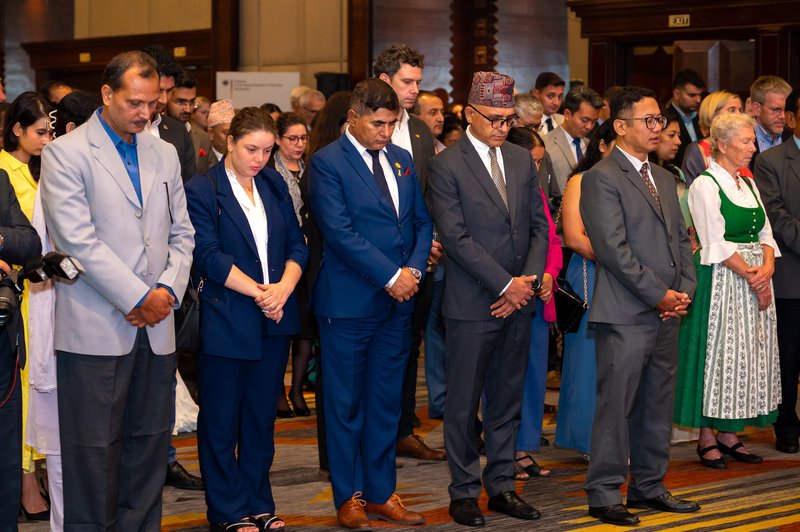
Ramsahay Prasad Yadav, Vice President of Nepal, was invited as the chief guest for the event. Among the guests were officials from various ministries of the Government of Nepal, leaders of political parties, heads of Kathmandu-based diplomatic missions, civil society members, Human Rights advocates, businesspersons, media persons and people from various walks of life.
In his welcome speech, Ambassador Prinz said, “Today, while we celebrate 34 years of German unity, we also celebrate 66 years of bilateral relations between Nepal and Germany. We have been standing with Nepal in difficult times, be it the civil war, the 2015 earthquake, Covid-19 pandemic as well as the recent catastrophic floods. We welcome the huge progress Nepal has made and continue our support.” Ambassador Prinz also held a minute of silence for those who lost their lives in the floods and landslides caused by torrential rain last week. He further noted that Germany has pledged to donate upto EUR 100,000 for the recent flood victims.
35 years ago, in 1989, the “Berlin Wall” came down – the wall which had been dividing the Eastern and Western part of Germany since 1963. The “Berliner Mauer” was designed to physically prevent disaffected East Germans from fleeing to the West. The Peaceful Revolution of 1989 led to the opening of the border on November 9, 1989, which for the first time after 28 years allowed Germans to freely move in the whole of the country. It led to a new form of encounters between the East and the West, which eventually re-united the whole of Europe.
- Enough Stock Of Passport For A Year: DoP DG Aryal
- Feb 05, 2025
- Weather Forecast: Geneally Cloudy To Mainly Fair
- Feb 05, 2025
- Duke and Duchess of Edinburgh Nepal Visit: Valuing Shared History And The Next Generation of Nepal –UK Friendship
- Feb 04, 2025
- Duke and Duchess of Edinburgh arrive in Kathmandu on 6-day Royal visit
- Feb 04, 2025
- FNCCI, CNI And NCC Call For Withdraw The Protest Against Cable Car Construction
- Feb 04, 2025
